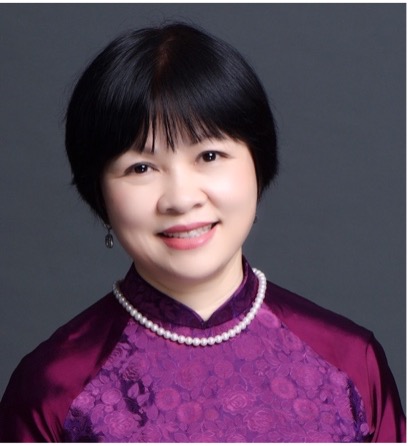Tiến sĩ Khuất Thu Hồng là người sáng lập và Viện trưởng Viện Nghiên cứu Phát triển Xã hội (ISDS), một tổ chức nghiên cứu độc lập có trụ sở tại Hà Nội. Bà Hồng có bằng cử nhân Tâm lý học năm 1984 và bằng tiến sĩ Xã hội học năm 1997. Trước khi thành lập ISDS bà là nghiên cứu viên tại Viện Xã hội học, Viện Hàn lâm Khoa học Xã hội Việt Nam từ năm 1984 đến năm 2000 và chuyên gia về giới tại UNDP Việt Nam từ tháng 3/2000 đến 5/2001. Lĩnh vực nghiên cứu chủ yếu của bà bao gồm giới, tình dục và hòa nhập xã hội.Ts. Khuất Thu Hồng là Chủ tịch Mạng lưới Phòng ngừa và Ứng phó Bạo lực Giới tại Việt Nam (GBVNet). TS. Hồng còn là một nhà hoạt động xã hội tích cực và một nhà vận động cho bình đẳng giới. Bà là khách mời thường xuyên của các đài truyền hình và phát thanh trong nước và quốc tế và thường trả lời phỏng vấn của báo chí về các vấn đề giới và xã hội ở Việt Nam.

MEETING RECAP
The ARWIL project held its 3rd meeting on June 26th aiming to discuss career facilitators/barriers related to ‘Family’. Dr Khuat Thu Hong, founder and Director of the Institute for Social Development Studies (ISDS) started the meeting with her keynote on “The development of Vietnamese Women: Opportunities and Challenges” in which she highlighted gender practice and gender attitudes tower women in Vietnam. In her presentation, Dr Hong marked that Vietnam has developed a very strong framework on legislation to address gender equality and women empowerment in recent years. For example, the gender equality law, the law to prevent domestic violence, and the national strategy for gender equality.
The country also has some impressive numbers in terms of advancing women rights. In employment, women’s participation in the workforce is 73 per cent compared to 47 per cent worldwide. In politics, women hold many key positions including Politburo member (1/18), member of the Central Committee of the Communist Party of Vietnam (19). The percentage of female National Assembly deputies is 30.26 per cent, higher than the worldwide percentage of 21.6 per cent.
Despite a strong legal framework on gender equality, women in Vietnam continue to experience discrimination, stereotyping and often lack economic and political opportunities at the household, community and community and national levels. More than half of women have experienced physical, emotional, or sexual domestic violence. Women’s position in the labour market is largely affected by socio-economic disadvantages caused by gender-based discrimination and expects them to engage in productive work in agriculture and the market economy.
The traditional expectation of domestic and family care responsibilities is the underlying cause of gender inequality in Vietnam. While other aspects of this perception have faded over time, the value of the role of family caregiver assigned to women remains firmly rooted in the thinking and behaviour of Vietnamese men and women from all walks of life. Particularly, women internalise this value and, in many cases, are willing to compromise their individual well-being and career. Research shows that young women are expected to sacrifice their formal education for the benefit of their male siblings.
Dr. Hong and Dr Huong mentioned in the Q&A about encouraging individual females, especially within this group because it is considered as an elite group of women to play an active role in advancing women’s leadership in terms of eliminating barriers that prevent women from assuming leadership roles.
In the Break-out discussion, participants were invited to anonymously share their own stories by answering 5 questions related to their family context.
After the meeting, most participants think Dr. Hong presentation was interesting. It helps them have a better understanding about “the current situation of women in Vietnam, the stereotype, which is hidden in patriarchy society, the barriers that women find difficult to overcome, the sharing stories of participants, guest speakers and project team members.”. One stated that she found their fellow participant stories are very “interesting, touching and helpful” while another “have learned experiences from others’ situations. It sounds great to understand the position of women in terms of different opinions.”



